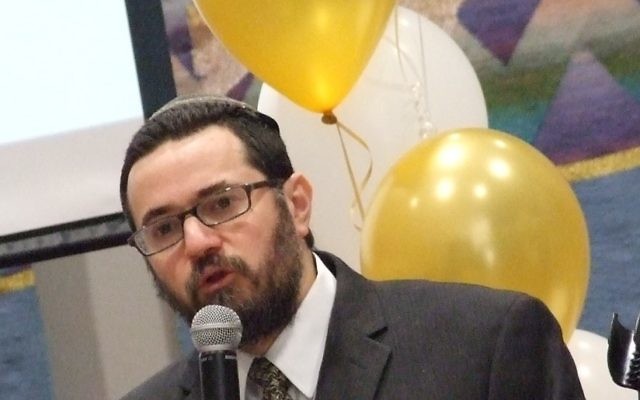B’nai Torah: Don’t Forget There’s a Next Day
By Rabbi Joshua Heller | Congregation B’nai Torah
How often do we focus on the here and now, this battle, this fight, tonight, and not what happens the next day?
The traditional Rosh Hashanah Torah reading, the binding of Isaac, exemplifies this challenge. The story is familiar: Abraham is commanded to sacrifice his son. They ascend the mountain, and he raises the knife. At the last moment, G-d stays his hand and substitutes a ram. But what happens the next day?
If we continue reading Genesis, it is not clear how Isaac and Abraham move on from their experience on Mount Moriah.
Whereas the text repeatedly emphasizes that they ascended the mountain together, it says of Abraham that “he” (singular) came down the mountain and went home with his servants. Isaac is not mentioned.
Rashi and some of the other classic commentators say Isaac went off separately to study. Through the rest of Genesis, we don’t see Isaac and Abraham interact. They live in different cities. Isaac’s sons, Jacob and Esau, are born while Isaac is still alive, and we don’t hear of their participation.
Of course, our sages and commentators found creative ways to fill or explain the missing years of relationship, but I think the text, as written, has a powerful message for us. I imagine that Abraham was fully prepared for the horrible possibility that Isaac would die up there on the mountain. How he would break it to Sarah. How he would bear his own grief.
He had no idea what he would do if Isaac lived. His son, his heir, his hope, was alive and yet was lost to him just as surely if he had brought down the knife after all. The sacrificial knife was held back by an angel’s words, but it had still managed to cut a deep gap between those generations. They each walked down the mountain alone.
There were only two Jewish men in the whole world, and they were not talking to each other. Seems plausible.
We live in a world where there is a different kind of gap among Jews, between generations and segments of our community. Those who speak the language of Jewish history and those who speak the language of social justice seem to have increasingly less in common, seem to be walking down different sides of the mountain.
Each year our community is faced with a new life-or-death issue. Last year, it was the Iran nuclear deal. This year, we are in the midst of an election season that promises to be one of the most contentious in history. The debate over how best to support Israel is a perennial one.
Discussions get heated. Relationships are sundered. Accusations are made. People are unfriended, on Facebook and in real life.
The stakes are indeed high, but Jewish history predicts that no matter who wins in November, there will be a new issue next year.
We live in a world where it is possible to become so focused on winning the debate or argument at hand, as important as it may be, that we lose sight of what may come afterward.
This issue of “the next day” is not just something played out on the world stage or our communal stage. It’s played out on our personal stage as well. Think about how often we “play for keeps” in office politics.
One can’t ever truly “win” a fight with one’s spouse. (I can’t with mine.) In fact, even a supposed win in a battle with an ex can end up being a loss in the long term.
Our sages chose, wisely, to end the Rosh Hashanah reading not with Abraham coming down the mountain, but with news from the old country back in Aram that Abraham has new nieces and nephews, including Rebecca, who will marry Isaac.
The Torah is teaching us that no matter what the conflict, the stress, no matter how pitched the battle, eventually there will be the next day. Eventually, there will arise a new normal, and we have to figure out how to live with those who were our foes the day before.
In 5777, may we be blessed to be able to see beyond the conflicts of 5776 and enter a year of greater shalom.
Rabbi Joshua Heller is the senior rabbi at Congregation B’nai Torah.





comments